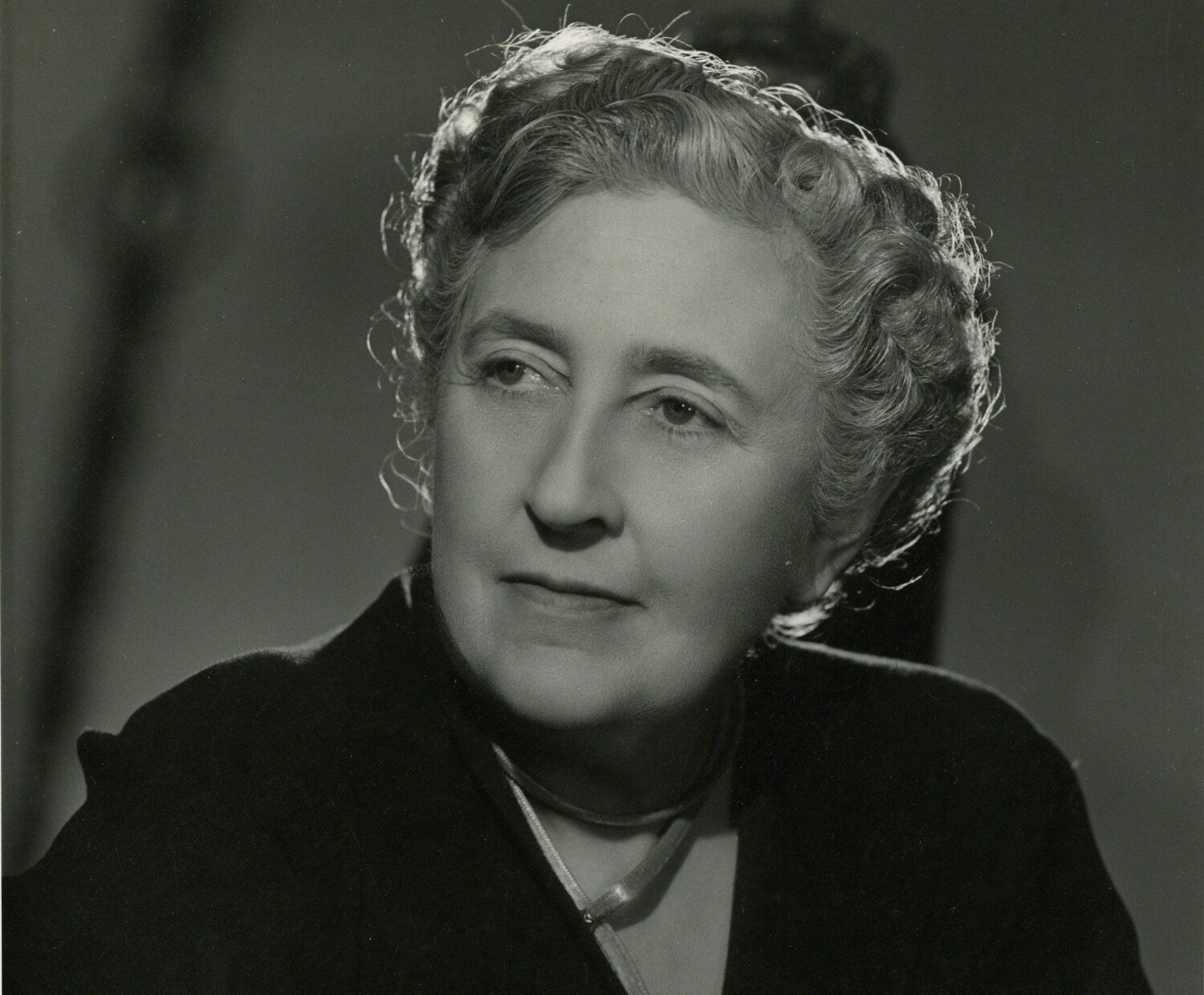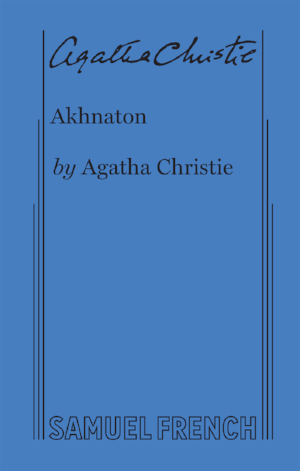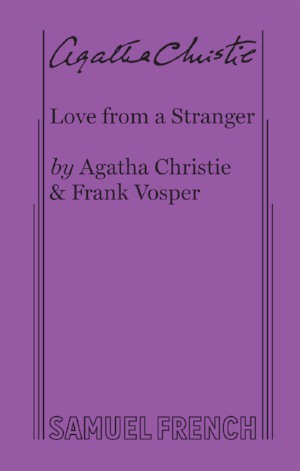
For superfans of Agatha Christie like myself, who have read every single Christie novel, you might think that there is nothing new left to discover and enjoy. I, for one, spent years wistfully dreaming of a lost manuscript (or two, or three) of Christie’s, stuck in a dusty closet somewhere, which would one day be rediscovered and published, much to the delight of mystery fans everywhere. Of course, I reasoned, that was just a pipe dream. Authors like Christie didn’t just write entire novels and then just stick them in a drawer and forget about them.
But now, it seems that an Agatha Christie fan’s dream has come true, because a cache of her previously unpublished work has now been printed and made available to the general public. These rediscovered works aren’t full-length novels, but playscripts written by Christie, an accomplished and successful dramatist, some of which have never even been performed.
Most Christie fans are aware of her stage adaptations of And Then There Were None (US/UK), Witness for the Prosecution (US/UK) and The Mousetrap; as well as four plays based on Poirot novels – The Hollow (US/UK), Appointment with Death (US/UK), Go Back for Murder (US/UK), and Murder on the Nile (US/UK); an adaptation of Towards Zero (US/UK); and her original play Verdict (US/UK), as well as a few one-act plays in Rule of Three (US/UK). Fewer people are perhaps aware that those Christie plays, which have been available to read and produce for two generations, comprise less than half of her total dramatic output.
Julius Green’s book Curtain Up: Agatha Christie: A Life in the Theatre is a revelation for many Christie fans. Green was allowed unprecedented access to the Christie Archives, and in those files he discovered copies of entire plays that had never made it to the stage. His coverage of his findings delighted me, leading me to wonder whether or not these newly unearthed materials would ever be shown to the general public.
Now, in late 2018, that day has come. The Collection, now with the addition of over a dozen works, is fully available to be read and performed. The Collection includes three plays Christie wrote for the radio, one television script, a handful of plays that have been available previously but were rarely performed, and a few long-lost plays that have never before made it to the stage. All plays in the Collection were either written by or with the direct involvement of Christie herself.
Christie adapted one of her first novels, The Secret of Chimneys (US/UK), for the stage early in her career, but the play was never produced and the script was forgotten. In the early twenty-first century, a theatre found the long-lost original script in its archives, and this tale of espionage, adventure, and the struggle for control of a fictional central European nation only received a few brief regional runs. More recently, the U.S. premiere at a Kentucky mystery play festival in 2008 won multiple awards – so it’s clearly ripe for revival.
Audiences may be familiar with Black Coffee (US/UK), The Unexpected Guest, and Spider’s Web (US/UK), and novelized versions of these plays were adapted by Charles Osbourne around the turn of the century. Black Coffee is one of the rare plays Christie wrote that actually features Poirot – she thought that Poirot dominated the stage too much and proved a distraction, so cut him from her adaptations of Appointment with Death, Murder on the Nile, Five Little Pigs, and The Hollow. Black Coffee has Poirot, Hastings, and Chief Inspector Japp visiting the home of a brilliant scientist with a nasty streak. When the scientist’s coffee is spiked with hyoscine, it’s up to the famous investigators to figure out whodunit – and Poirot might have to put his life on the line to catch the killer.
The Unexpected Guest has a slightly different narrative from standard Christie fare. Probably no other Christie mystery has as many false confessions! When a man has car trouble near a country estate, he walks into the house to find a gun-wielding woman standing over her husband’s corpse. She immediately confesses, and, feeling sympathetic, the stranded motorist decides to take steps to prevent the new widow from being arrested for the crime. Unfortunately, other people are more than willing to take credit for a murder they didn’t commit, and soon the bewildered motorist is compelled to not just clear the names of those who are innocent, but to figure out the truth behind the shooting.
Spider’s Web is different too: it’s a comedy featuring a vanishing (and reappearing) corpse. Containing plot elements borrowed from her own stories The King of Clubs, Towards Zero, Strange Jest, The Cheap Flat and Evil Under the Sun, it features an imaginative woman, Clarissa Hailsham-Brown, who is drawn into a tangled web of mystery and lies when a dead body is found in her living room, and she thinks that someone she loves is the culprit. She enlists some loyal friends to help her protect her family, but events start spiraling out of control, and soon Clarissa has to contend with the police as well as a desperate killer.
Christie’s second husband, Max Mallowan, was a famous archaeologist, and he helped develop her interest in Ancient Egypt, inspiring Akhnaton (US/UK). This is a historical play set at a time of political and religious turmoil when a young Egyptian king decides to jettison the land’s traditional polytheistic religious beliefs in favor of the monotheistic worship of the Sun, Aton. This leads to great conflict, and Christie skillfully makes the political machinations for the soul of Egypt relevant to contemporary times. Never performed during her lifetime, Akhnaton was considered by Max Mallowan to be his wife’s “most beautiful play.”
Christie wrote six romance novels under the pseudonym Mary Westmacott, but interestingly, one of these novels, A Daughter’s A Daughter (US/UK), started life as a play. It’s the story of a turbulent relationship between a mother and her adult daughter, and the tension between them as they try to meddle with each other’s love lives, make poor life decisions, and eventually reach a point of reconciliation. A Daughter’s A Daughter is not a mystery, but is instead a character-driven drama with fantastic, nuanced roles for female actors.
Christie’s best works have also been adapted by other people. One of Christie’s greatest short stories, Philomel Cottage, follows a new bride who begins to wonder if her life’s in danger, but isn’t sure who poses the greatest threat to her. As the story unfolds, the source of the evil is revealed, and the woman must use all her wits and resourcefulness to save her own life. Frank Vosper’s stage adaptation, Love from a Stranger (US/UK), was a hit and recently toured the UK. What is not commonly known is that Christie wrote her own adaptation of the story, The Stranger (US/UK), which has recently been released, and which influenced Vosper’s version.
The stage adaptation of Christie’s dark novel Towards Zero was co-written with Gerald Verner. In this story, a criminologist declares that most mysteries start at the wrong point, with a murder. The murder, in his opinion, is the end– zero hour– and everything leading up to the murder is the real story. In Towards Zero, a famous athlete visits the estate of his former guardian, Lady Tressilian, along with his second wife… and his first wife. As the love triangle grows increasingly awkward, and men in love with both the first and second wives enter the picture, one would think that the situation couldn’t get worse. And then Lady Tressilian is murdered. Christie was reportedly unhappy with Verner’s adaptation, so she wrote her own, focusing on the twisted relationships between the characters and setting the drama outdoors. Only recently discovered, Christie’s own outdoor version has now been released to the public as part of The Collection.
Christie didn’t just write plays for the stage: she wrote for radio and television as well. In The Wasp’s Nest (US/UK), Christie’s only teleplay, Hercule Poirot investigates a series of odd events with an unusual goal in mind: he is trying to prevent a murder from happening. The Wasp’s Nest was released on television in the years before broadcasts were recorded, so sadly no tape of the original and only broadcast exists.
In the radio play Personal Call (US/UK), a man and his wife keep getting phone calls from his first wife, who died in a mysterious railway accident some time earlier. Is it a cruel prank? Some twisted plan? Or is the supernatural involved? As the couple investigates, the tension heightens, as it seems clear one – possibly both – of them are in mortal danger. All of Christie’s radio plays can be easily adapted to play on the stage.
Yellow Iris (US/UK) is another Poirot play written originally for the radio. In Christie’s only play with songs, Poirot goes to a fancy restaurant for a reunion dinner. Years earlier, a woman died from cyanide poisoning, and it was ruled a suicide; but as not everybody believes this, a dinner is being held in order to catch a killer. As Poirot investigates, a chanteuse sings songs that reflect the motives in the case and the relationships between the suspects. The story, with a different solution, was eventually expanded into a full-length novel without Poirot, Sparkling Cyanide.
Butter in a Lordly Dish (US/UK) takes its name from the Biblical story of Jael, who got vengeance for her people in a particularly brutal and grisly way. In this radio play, an arrogant and adulterous prosecutor, Sir Luke Enderby, takes pleasure in sending guilty men to the gallows. However, the ghost of one of his most famous serial killer cases haunts him, as rumors that the man executed for the crimes was actually innocent circulate. As the story unfolds, it becomes clear that justice may not have been done in the prosecutor’s cases, and someone close to the potentially wrongly convicted man is out to try, convict, and execute Sir Luke.
Fiddlers Three (US/UK) is the last play Christie ever wrote, and has almost never been performed or published since its initial, brief run. In this blackly comic drama that combines humour with intricate plotting and a confounding murder, some friends try to dispose of a body, with unexpected results.
Actors and theaters who enjoy Christie’s works will enjoy presenting these newly released plays, allowing fans to experience a wealth of new adventures and mysteries from one of their favorite writers. Indeed, there are other plays that Christie wrote that are still waiting to be published, so fans may await more surprises in the years to come.
…
To explore all of the plays available to perform, visit the newly expanded Agatha Christie Collection. In the US/North America, click here. In the UK/Europe, click here.
Photo: Agatha Christie (The Christie Archive Trust)

Comedy Mysteries: Gasps, Laughs and Thrills

A Children’s Theatre Classic: An Interview with Snow White And The Seven Dwarfs Composer Michael Valenti




